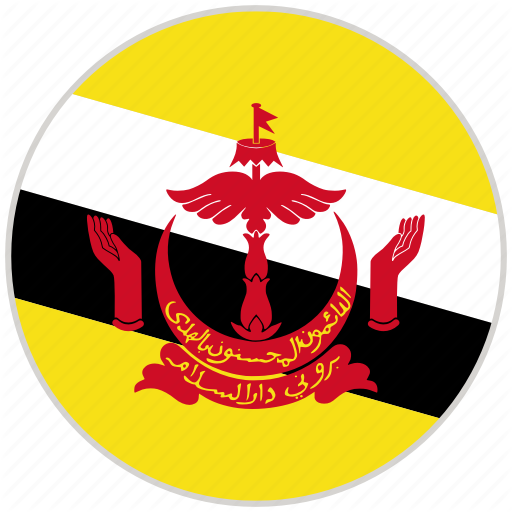8. The APT government generally recognized the importance of addressing social welfare issue as part of their national development strategies or plan so as to ensure that the development process in their countries is sustainable in the long run. However, as the APT countries are at different stages of development with different circumstances, priorities, and needs, their policies and measures to address social welfare issue would therefore vary.
9. The recognition of the importance of social welfare is indicated by the fact that all APT countries have established state agencies to tackle various aspects of social welfare. However, the multiplicity of the state agencies often create problems of coordination and governance. Building a convergence strategy, like the one of the Philippine’s “Tatlong Sulo Laban sa Kahirapan or TATSULO,” is an important effort to solve this problem.
10. The difference in the stages of development also creates differences in the implementation of social welfare policies. Developed countries such as Japan and South Korea generally have an advanced social welfare system. On the contrary, developing countries, due to their limitations, usually have a less developed social welfare system. However, there are developing countries with the advanced social welfare system. Thus, while development stage matters, there are other factors, such as government’s commitment and approach, that shape the implementation of social welfare policies. Cooperation with external actors in various aspects, including technical assistance and financial support, will be beneficial for supporting the reforms in social welfare policies.
11. In APT countries, social welfare system generally evolves following political and economic changes. For example, in the early period, Singapore government focused on the provision of low-cost public housing, a basic level of affordable healthcare, and an education system geared towards the study of mathematics and science as well as vocational skills rather than humanities. The host of social policies implemented not only guaranteed a basic standard of living for all Singaporeans but also enhanced their ability to contribute to the city‐state’s economic development. By 1970s, when the economy achieved full employment and as income of Singaporeans continued to rise, the emphasis of social welfare shifted to fostering self-reliance within individuals, families, and communities. This is achieved by the government continuing its investments in public housing, education, and healthcare; providing jobs with rising income; instituting a system of forced-savings; managing various schemes of monetary aids designed to break the poverty cycle; and involving various stakeholders in building a social safety net. By integrating social development and economic development right from the beginning, Singapore successfully set in motion a virtuous cycle of rising living standard and healthy economic growth. The pragmatic approach has helped to raise the overall welfare of the population without plunging Singapore into a debt-ridden welfare state as has happened in the Europe. Notably, in recent years, Singapore is increasingly afflicted by problems which also plagued many other developed economies. They include widening social and economic inequalities, an aging population, structural unemployment, and rising expectations from a better educated and more affluent population. In response, new social welfare programs have been put in place not only to provide assistance to needy families but also to ensure that children from these families do not become disadvantaged because of their less-privileged background.
In China, social welfare system evolves following political and economic changes of the country. The planned economy of pre-1992 created problems in the social welfare system, such as welfare dependency, unequal opportunity (ironically created by the egalitarian ideal but practically favor state officials or party members), and the perpetual urban-rural divide. Government response to developing social welfare was often undermined by inflation and thus reforms are put on hold several times. As China was opening up to the world, economic development was placed as top priority. Social welfare policies are designed to ensure the smooth reform and the restructuring of State-Owned Enterprises. During the period of Premier Zhu Rongji (1997-2002), there was a full marketization of enterprises and social welfare which were previously public responsibilities. After a decade of economic development, the environment was changed. Economic growth was accompanied by emerging structural problems and intensified social conflicts. Responding to the change, social welfare reform was started since 2003 to achieve an all-round welfare system.
12. The strong correlation between political development and the development of social welfare policies also highlights the fact that social welfare policies are very prone to political dynamics. Elections matter as the quest for political stability does. To manage the impacts of political dynamics on the sustainability of social welfare policies, it is important to establish supportive institutional mechanisms.
13. In most APT countries, limited resources forced the governments to prioritize social welfare policies. In some countries, such as in the Philippines, priority target areas and target groups were identified based on the National Household Targeting System for Poverty Reduction (NHTS-PR), which is a targeting system based on the proxy means test and is aimed at ensuring better targeting of beneficiaries. In some other APT countries, the coverage allocation is based on other measures, such as membership to institutions (civil service, armed forces, companies). Nevertheless, in most APT countries, especially the developing ones, people in the informal sector are not covered by the social security system.
14. It is believed that social welfare policies to succeed need strong participations from various stakeholders, both at domestic and international levels. To guarantee the sustainability of social welfare policies, the government should not be seen as the sole actor. In financing the policies, it is important to find the right balance of the contributions from various stakeholders.
III. Social Welfare as a New Ground for Regional Cooperation: Challenges and Opportunities
15. It was found that despite general recognition of the importance of social welfare policies, APT Countries face various challenges in addressing issues relating to social welfare. Moreover, globalization also creates tremendous effects on the society. In this context, the situation of social welfare of a country is strongly correlated to various factors coming from outside of the country. Thus, in order to develop effective domestic policies, there is a need to develop international cooperation at regional level. Social welfare should be seen as a new ground for regional cooperation.
16. At the ASEAN level, the concept of inclusive growth and the importance of social welfare are immersed in the ASEAN mechanisms. ASEAN sectoral bodies relevant to this issue are Ministerial and Senior Official Bodies on (a) Rural Development and Poverty Eradication, (b) Social Welfare and Development; (c) Women’s Advancement and Gender Equality; and (d) Labour (including migrant workers). There are also some ASEAN Plus Three Projects/Activities related to social welfare. With all of those regional mechanisms, ASEAN views that main responsibilities for social protection are in the hands of each country.
17. List of key challenges at domestic level includes:
-
Despite the general recognition of the importance of social welfare, there is a lack of prioritization to social welfare issues in the mainstream national and local development plan and initiatives.
-
Inadequate or inconsistent supervision, inspection, and evaluation of programs and initiatives on social welfare.
-
Overlapping functions, unclear responsibilities, and poor coordination among various institutions/agencies created to tackle social welfare issues.
-
Limited technological capabilities and inadequate human resources.
-
Poor physical infrastructure.
-
Poor educational and healthcare infrastructures.
-
Lack of financial resources and inadequate budget allocation.
-
The vulnerability of social welfare policies to political dynamics at the national and local levels.
-
Sustainability of financing social welfare system.
18. List of key challenges to develop a regional cooperation on the social welfare policies includes:
-
Willingness of the governments to bring sensitive issues to the regional level. Because of the complexity of social welfare issues, they often involve various sensitive aspects of national politics.
-
To convince the governments that all countries, both developed and developing, will benefit from a regional cooperation on social welfare policies.
IV. Recommendations
19. Social welfare is an important element of inclusive growth which will contribute to a more sustainable future of the development of APT Countries. With the growing interconnectedness created by globalization, social welfare policies should be a new ground for regional cooperation. A regional cooperation in social welfare policies will create opportunities for APT countries to strengthen their national efforts in addressing social welfare issues by tapping each other’s strengths and advantages. Regional cooperation on social welfare policies will also lay a stronger foundation for an East Asian Community.
20. Below are key recommendations to promote cooperation on social welfare policies among the APT Countries:
-
Mainstream social welfare as key priority of the national development strategies of APT Countries.
-
Create more opportunities and initiate efforts at regional level to facilitate exchanges of information, capacities, technology, experiences and resources in order to develop effective domestic policies on social welfare.
-
Promote more bilateral and multilateral cooperation among APT countries on social welfare (not only policies) such as the Japan-Indonesia collaboration in implementing the Mother and Child Record Book
-
Identify means to improve the social welfare system in each country to create a more resilient society.
-
Formulate collaborative research agenda to tackle social welfare policies and issues in APT countries that can be used to
-
Draw-up policy recommendations for regional cooperation on the improvement of social welfare system in APT countries
-
Support reforms on the social welfare systems in APT countries, including in the efforts to cover those in the informal sectors.
-
Strengthen institutional capabilities and coordination among government agencies and ministries related to social wefare policies in the APT Countries.
-
Identify and support programs and initiatives to help vulnerable/marginalized groups in the APT countries.
-
Showcase good practices and succesful examples of social welfare policies in the APT countries.
-
Recognize, involve and encourage stakeholders such as organizations and individuals to contribute to broad- based participation in implementing social welfare policies in APT countries.
-
Incorporate social welfare considerations, wherever possible, into regional economic cooperation mechanisms.
NEAT Indonesia
20130815
PARTICIPANTS
NEAT Working Group Meeting on Inclusive Growth (Phase II)
"Social Welfare Policies in East Asia: Sharing Experiences for a New Ground of Regional Cooperation"
Depok, Indonesia, 11 July 2013
Co-hosted by NEAT Indonesia and NEAT Singapore
Chairs: 1. Evi Fitriani, PhD
Country Coordinator, NEAT Indonesia
Head of International Relations Department, FISIP, University of Indonesia
2. Mr. Lye Liang Fook
Contact Person, NEAT Singapore
Fellow, East Asian Institute, National University of Singapore
NEAT Representative
|
No. |
Country of Origin |
Name |
Position & Institution |
|
1 |
China |
MIAO Ji (Mr.)
|
Research Fellow at East Asian Studies Center, China
Foreign Affairs University
|
|
2 |
Japan |
Kaoru ISHIKAWA (Mr.) |
Director of Research, Superior Research fellow at the
Japan Forum on International Relations, Inc.
|
|
3 |
Laos, PDR |
Thavone SINGHARAJ (Mr.) |
Deputy Director of Research Division,
Institute of Foreign Affairs
|
|
4 |
Myanmar |
U Aung BWA (Mr.) |
Director General of ASEAN, Ministry of Foreign Affairs,
Myanmar (RTD)
|
|
5 |
Singapore |
TAN Meng Wah (Mr.) |
Research Fellow, Institute of Policy Studies
|
|
6 |
Thailand |
Thammarat MAROHABUTR (Mr.)
|
Lecturer at Faculty of Social Sciences and Humanities,
Mahidol University
|
|
7 |
Viet Nam |
HO Hong Han (Ms.) |
Deputy Director of External Cooperation
Department, Diplomatic Academy of Vietnam
Analysis at Institute of Strategic and International Studies (ISIS) Malaysia
|
|
8 |
Malaysia |
Natalie Shobana AMBROSE (Ms.) |
Supervising Research Specialist,
Philippine Institute for Development Studies
|
|
9 |
Philippines |
Janet Salapare CUENCA (Ms.) |
Lecturer,Department of Social Welfare, Faculty of Social and Political Sciences, Universitas Indonesia
|
|
10 |
Indonesia |
Bagus ARYO, Ph.D (Mr.)
|
Associate Professor,
Department of Social Welfare, Mokpo National University, Korea
|
|
11 |
Korea, Republic of |
Prof. Yongran Kim |
|
|
12 |
Cambodia |
|
|
|
13 |
Bruinei Darussalam |
|
|











.png)



.png)




